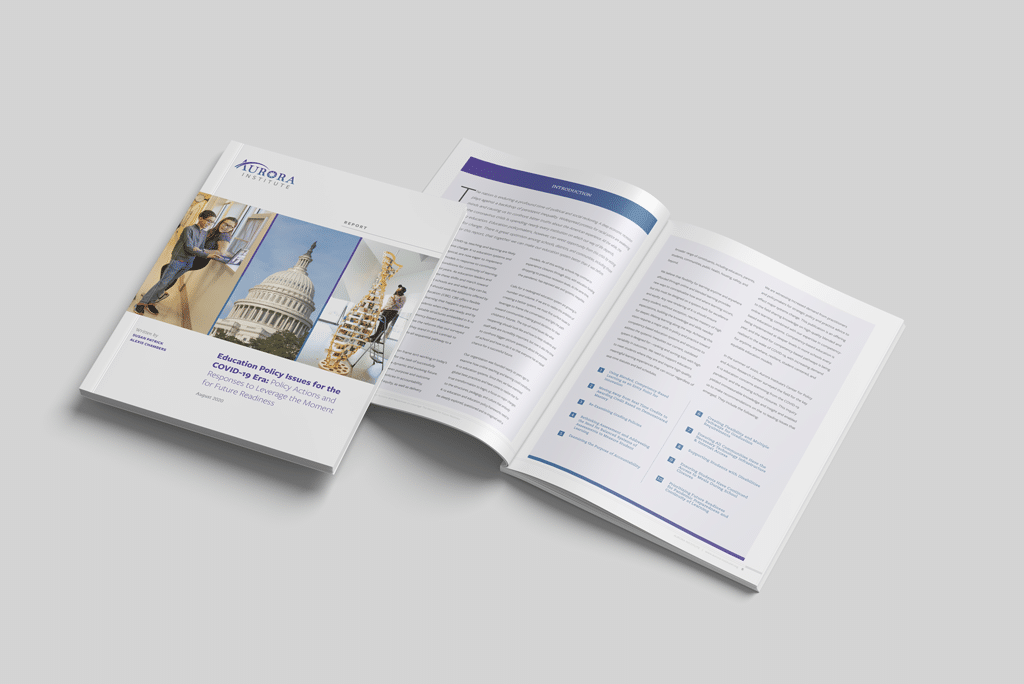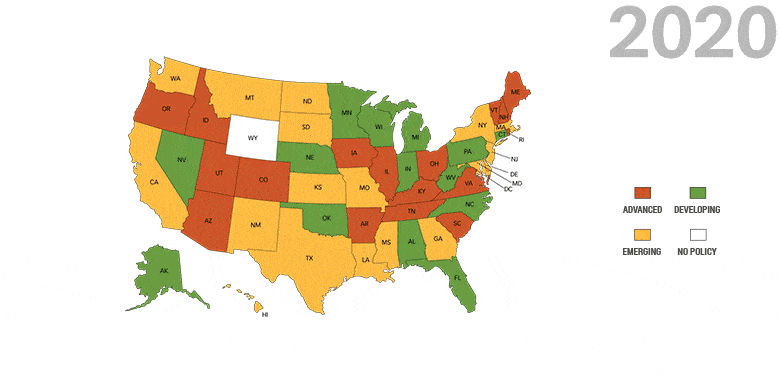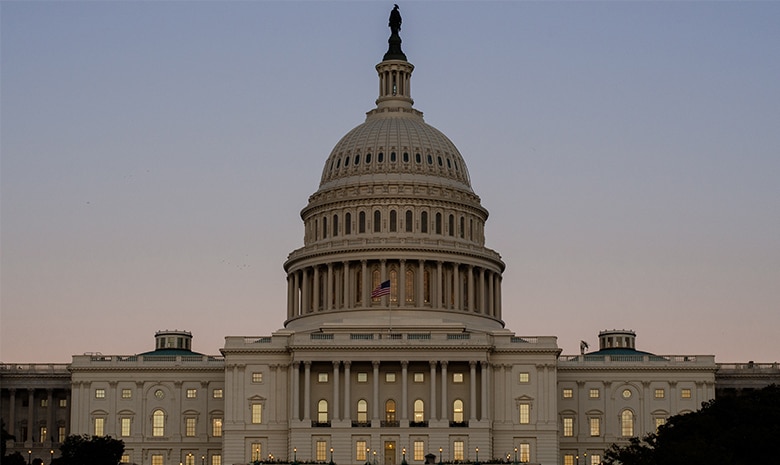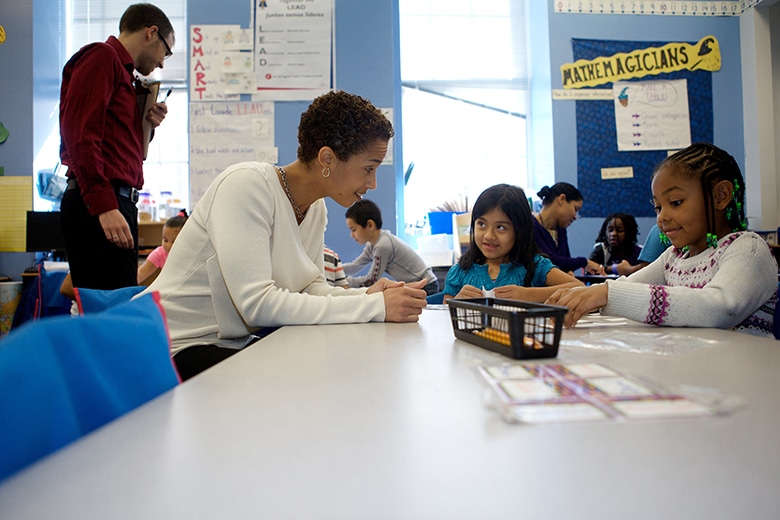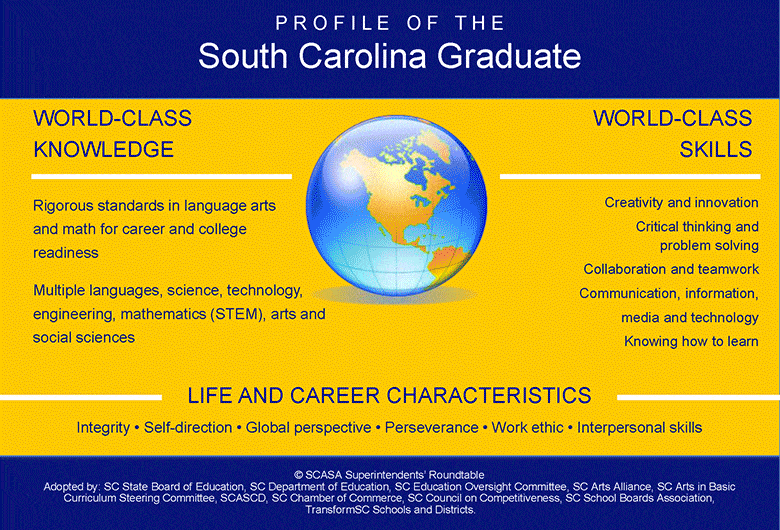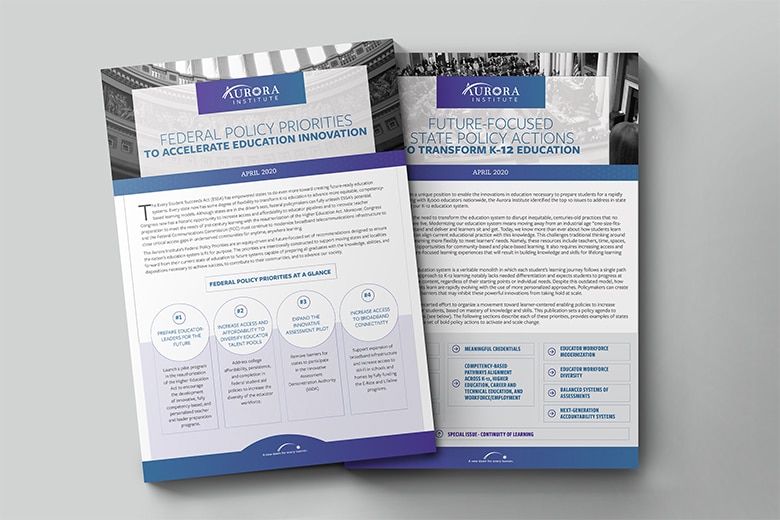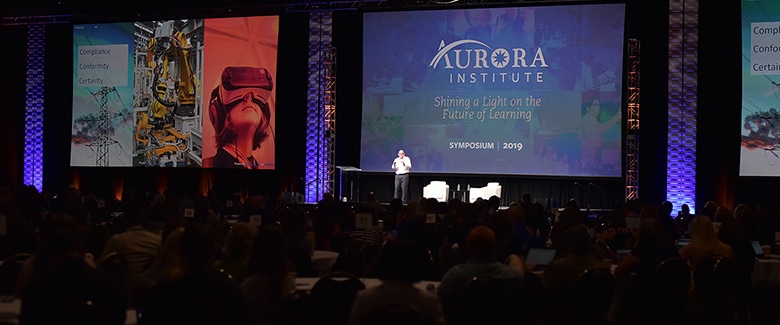Top 10 Posts of 2020
Education Domain Blog
K-12 education has been far from ordinary this year. As the novel coronavirus pandemic picked up pace across the nation, we supported school systems with lessons about anytime, anywhere learning. Also, education policymakers throughout the country sought counsel on how to enable the conditions for personalized, competency-based education. From continuity of learning to comments on federal policy to new publications, the Education Domain blog has chronicled a year that history may prove to be a watershed moment for systems change in K-12 education. The following 10 posts are the ones that resonated most with our readers in 2020.
Education Policy Issues for the COVID-19 Era
The COVID-19 pandemic has led to the largest disruption of education ever. K-12 education system leaders at the state and local level are seeking strategic guidance to advance lasting change to improve teaching and learning for all students. [Read More]
Task Forces and Pilot Programs: Two Strategies to Enable Future-Focused, Student-Centered K-12 Education
Two tools have emerged as a means for schools and districts to begin their transformational journey to more personalized, student-centered learning: task forces and pilots. These strategies are highlighted as an important policy priority in the Aurora Institute 2020 state policy agenda, which is a call to action to enable the needed innovations in education to equip students for a rapidly changing world. [Read More]
New Flexibility to Use Federal Title Funds for Technology Infrastructure and Teacher Training for Distance Learning
The U.S. Department of Education (ED) created new flexibility for the use of federal title funding due to COVID-19. States can repurpose existing K-12 federal funding to pay for technology and teacher training needs associated with shifting to online learning. [Read More]
The Learning Sciences Supports the Shift to Student-Centered Learning
The findings from the learning sciences support the shift to student-centered learning models, such as competency-based education and personalized learning. Many of the necessary elements of designing environments based on how students learn best are embedded in student-centered learning models. For all students to succeed in K-12 education, they must be provided with multiple ways to demonstrate their knowledge, and educators must continuously monitor student pace and progress and provide interventions to keep students on track to meet their goals. [Read More]
Continuity of Learning Is an Urgent State Education Policy Priority
States have a leadership role to play in continuity of learning for preparedness in times of an emergency, such as a pandemic or other disasters, during which schools must close. A hallmark of future-focused, student-centered learning is ensuring that learning can be decoupled from place and time so that learning can continue anywhere at any time. A continuity of learning plan ensures students can stay on their learning pathways during an interruption, such as a prolonged school closure or absence due to illness, natural disasters, conflicts, or weather events. [Read More]
Systems Thinking Can Help Spark and Sustain Change
Transitioning education systems to be competency-based represents a massive shift from established ways of doing things. It involves shifting practice, reorienting outcomes, and building understanding and shared vision among educators, learners, families, community members, and other stakeholders. Teachers have to facilitate and assess learning differently. Students have to take more ownership of their learning journeys. Families have to develop new lenses for understanding children’s development. Community members have to shift their expectations of what learning looks like, where it happens, and what supports the school’s need. [Read More]
Profile of a Graduate to Redefine Student Success for the Future
Across the country, states are creating a Profile of a Graduate to set forth a modernized vision for student learning and achievement. These graduate profiles articulate the knowledge, skills, and dispositions students should have upon graduating from K-12 education to be prepared for college, careers, and civic life. Enabled by the passage of the Every Student Succeeds Act (2015), states and districts are establishing graduate profiles by partnering with communities and engaging with diverse stakeholders to determine what is essential for their students to thrive after K-12. [Read More]
Aurora Institute Announces Federal and State Policy Agenda
Today, the Aurora Institute’s Center for Policy published Future-Focused State Policy Actions to Transform K-12 Education and Federal Policy Priorities to Accelerate Education Innovation. These briefs highlight the key issues, including the need for continuity of learning as illustrated by our global COVID-19 crisis, and the need to focus attention on anytime, anywhere student-centered learning and systems change in K-12 education. [Read More]
2020 Aurora Institute Symposium Planning and Coronavirus Response
For 15 years, the Aurora Institute Symposium (formerly iNACOL Symposium) has brought together thousands of educators, practitioners, researchers, policymakers, and advocates to share the latest trends, innovations, and advancements from the leading edge of K-12 education. [Read More]
Aurora Institute Symposium 2020 Is Going Virtual
We have made the decision to shift our in-person Aurora Institute Symposium 2020 to a virtual convening. We were encouraged by more than 500+ colleagues across the field to continue with hosting a virtual conference, and we wanted to share the details on planning this year’s Aurora Institute Symposium 2020. [Read More]
